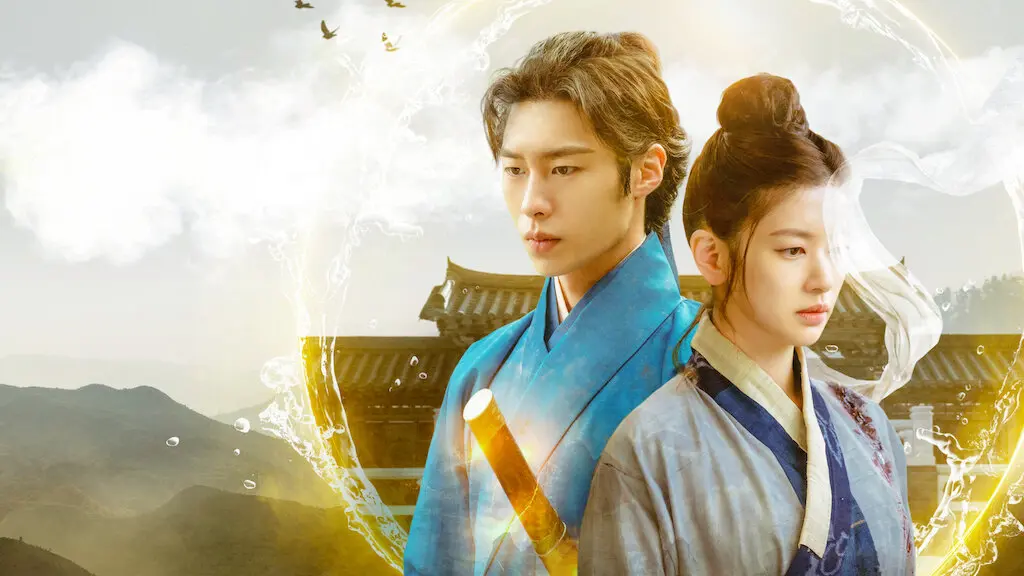Summary
A solid first season of Alchemy of Souls brings plenty to praise but leaves some small areas to improve.
Laced with intricacy, detail, and dedicated world building, Alchemy of Souls has all the hallmarks of a noteworthy, memorable K-Drama. Yet its occasionally circular narrative, or sometimes its noticeably methodical pacing, at times became a drawback of the famous Hong sisters’ latest project, slowing down the climb to the season’s seamlessly memorable finale.
Plot wise, the show revolves around the lives of people residing in a place not known to regular humans, Daeho. There, mages, sorcerers, assassins, maids and all manner of other imaginable people ply their trade, helping the numerous areas of this restricted world function.
If that sounds complex, it’s because it certainly is, yet Alchemy of Souls goes one step further by focusing in on a select number of characters, and their lives within Daeho, too. Chiefly, there’s Jang Uk, a developing mage who, once his gate of energy is unlocked, navigates the journey from being a clumsy no-hoper to a refined, confident man. He’s aided largely by Mu-deok, who houses the soul of the former assassin Naksu. The two have an unconventional relationship that evolves into so much more, and allows for both to grow into intrinsically better people.
On the opposite side of things, Jin Mu is the central antagonist. A cynical assistant Gwanju that seeks to control Daeho through outlawed sorcery, all while manipulating those around him, he’s the typically astute, hard-to-beat foil for the proverbial good guys, and instantly detestable. Add to that a stacked support cast which ranges from swindlers to soul shifting Queens, and again it’s clear just how layered Alchemy of Souls is.
As touched on earlier, this level of intricate detail is a major strength, as well as a periodic flaw. As far as the overwhelming positives, it’s so easy to get swept up in this world of fantasy, one so intriguing in its numerous threads that it genuinely makes the show feel like a form of escapism. The stories regarding a maturing, charismatic mage like Jang Uk who is inherently flawed, yet dedicated to travelling on the right path in life, contain an investable emotion which is generally hard to come by. Similarly, the unravelling changes of Mu-deok from a resilient, steely assassin to a selfless, caring partner are sweet in how they play out, especially given the fact she never quite loses touch with the hard-nosed person she once was.
With that being said, there were frustrating elements to how steadily some of these plot points were built upon. Certain times narratives involving relationships, or key decisions, were repeated or continued to the point the outcome became wholly predictable, or lost a smattering of its impact. It was nothing overtly bad, far from it, but in December’s part two, a brisker pace could provide heightened entertainment, as well as maximise the minutes of episodes that are already undeniably lengthy.
In the grand scheme of things, the flaws are only minute complaints though, especially when there is so much to praise. For one, Jung So-min is excellent in her depiction of Mu-deok, syringing her performance with depth as her character tussles with the progression from vengeful assassin to altruistic protector. Just as impressive are Lee Jae-wook and Jo Jae-yun, who play their respective roles as Daeho’s potential saviour and the area’s prospective downfall with a marked efficiency.
Continuing, the whole series looks fantastic visually. Bringing life to this fictitious world, director Park Joon-hwa emphasises the expansive area he has to play with, immersing the viewer in every scene. Complete with some rather solid CGI, visual effects and use of pathetic fallacy, the show has some undeniably sleek appeal.
Overall, the first season Netflix’s Alchemy of Souls was an enticing, consistently solid introduction to (and journey through) the complex world of Daeho. It might not have been perfect, nothing ever is, but there’s plenty here for anyone to sink their teeth into, as well as enough substance for those looking for something comprehensive to enjoy.
More Stories on Alchemy of Souls:




